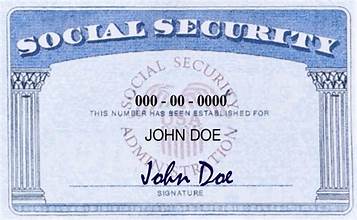The updated guidance is in Volume 2, Part F, of the USCIS Policy Manual. Highlights include the following:
Nonimmigrant Intent
- Per section 214(b) the Immigration and Nationality Act (INA), international students in the F or M categories must intend to depart from the United States after a temporary period of stay and have a foreign residence that they have no intention of abandoning. Relying on the State Department’s Foreign Affairs Manual as authority, USCIS clarifies in its guidance that the foreign residence requirement should be adjudicated differently for students than for other nonimmigrants, considering that students typically lack the strong economic and social ties of more established applicants. For example, if a student had a foreign residence immediately prior to traveling to the United States, even if such residence was with parents, they may be considered to be maintaining a residence abroad if they have the present intent to depart the United States at the conclusion of their studies. Relying on the premise that most students are young, USCIS explains that international students are not expected to have long-range plans for after graduation, as long as the student presently has the intent to depart the US at the conclusion of approved activities. USCIS does not address whether older students who, for example, reside with spouses and children, can similarly qualify for the category without being able to articulate long-range plans.
- USCIS further clarifies that an international student in F or M visa status may be the beneficiary of an approved or pending permanent labor certification application or immigrant petition and still be able to demonstrate their present intent to depart the US at the conclusion of approved activities, as the fact that the student’s intent may change in the future is not a sufficient reason to deny them student classification. Despite this interpretation of nonimmigrant intent by USCIS as it relates to F or M visa status, student visa applicants are cautioned that the State Department’s Foreign Affairs Manual, which controls adjudications of F and M visa applications at consular posts abroad, uses considerably less permissible language. Rather, the Foreign Affairs Manual indicates that, while a visa requiring nonimmigrant intent may be issued to an applicant with an active immigrant petition, it reminds officers that such a petition is “reflective of an intent to immigrate” and consular officers may not issue F or M visas if they have reason to believe the applicant intends to remain in the United States beyond their authorized period of stay. 9 FAM 401.1-3(E)(2).
- USCIS specifies that an F student seeking an extension of optional practical training (OPT) based on a degree in a science, technology, engineering, and mathematics (STEM) field may be employed by a startup company, as long as the employer adheres to the training plan requirements, remains in good standing with E-Verify, provides compensation commensurate to that provided to similarly situated U.S. workers, and has the resources to comply with the proposed training plan.
- Notably, the updated guidance clarifies that alternative forms of compensation, such as stock options, may be permitted during a STEM OPT extension as long as the employer provides the same type of compensation to similarly situated US workers. The requirements that the STEM OPT employer remain in good standing with E-Verify and have the resources and personnel required to appropriately train the F-1 student remain unchanged.




















 RSS Feed
RSS Feed